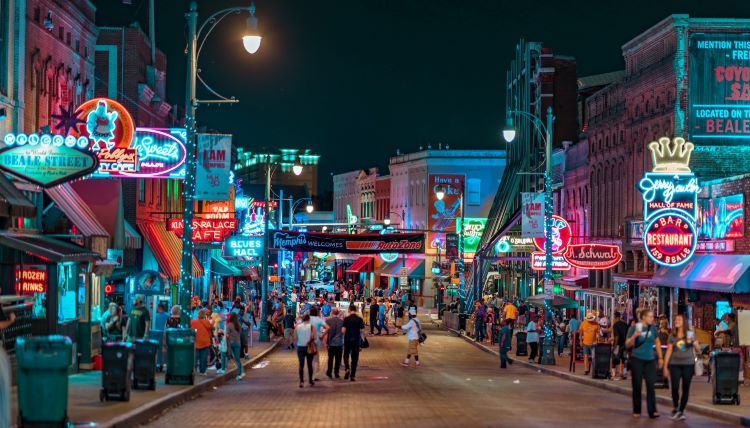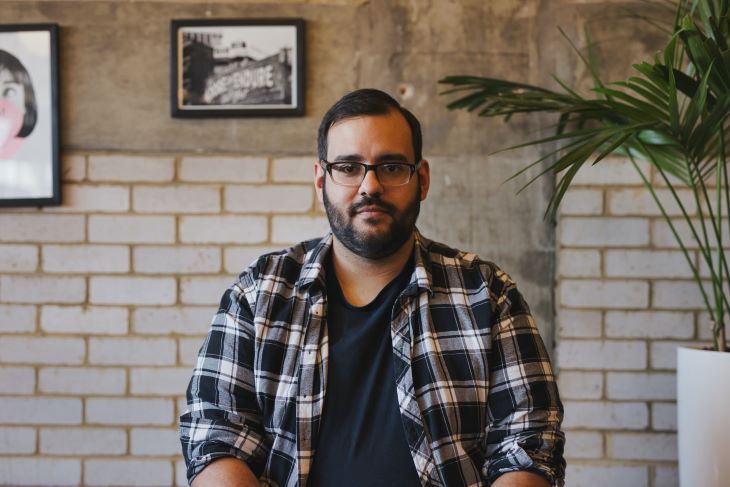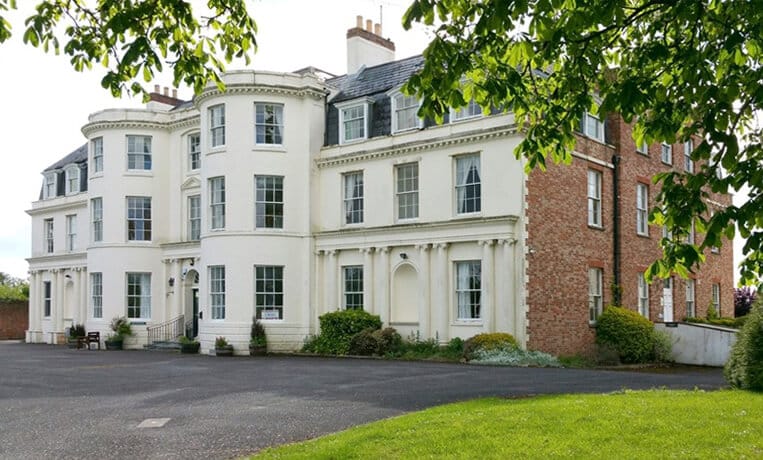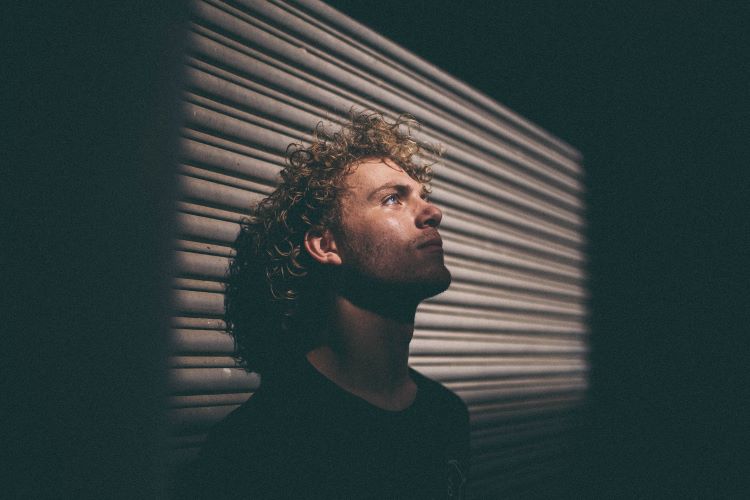Rehab in Cheltenham is needed more than ever.
There were 161 drug-related offences reported in Cheltenham in 2021.
It’s safe to assume that many more people possess and take drugs that are simply not reported.
What this means is that there are hundreds of people in Cheltenham and across the county struggling with addiction who require support.
Through the rehab treatment process, addiction sufferers get the chance to recover for good.
We offer help and support via drug and alcohol rehab and residential rehab facilities in Cheltenham and across the region in Gloucester, Somerset, Bristol, Cirencester and Tewkesbury.
There are various addiction treatments at a drug and alcohol rehabilitation in Cheltenham can address, including:

Rehab can treat addiction to almost anything.
There are nine main types that most physical addictions fall into:
There are also five main types of behavioural addictions:

Mental health problems, experiencing your parents in addiction as a child, and peer pressure can also leave you at a higher risk of developing an addiction.
Addiction scientist Alison Goate’s research found that genetics could also influence our likelihood.
A study into a people with particular gene called CHRM2 discovered that this makes people more likely to become addicted.
Addiction is different from other neurological disorders, as it’s classified buy the 4 Cs – compulsion, craving, consequences and control.
Professionals at rehab will be able to treat you with this in mind, and ensure your individual needs are met.
Self-acceptance and believing in your ability to recover are the most important aspects of addiction recovery.
Medication, addiction counselling, support networks and a free 12-month aftercare programme can support you with every step of your journey.
There are 5 rules of addiction at rehab:
Research has proven that these rules help promote a strong addiction recovery.

The 7 Rs of recovering from a crisis apply to addiction, as often once a person has decided to change, their life has been negatively affected in a big way:
Everyone in addiction at rehab goes through various stages as they heal:
Each person will take a different amount of time to feel better, but on average, most people are comfortable in their sobriety within six months to five years.

Many families face a huge amount of stress and tension when one of them is suffering from addiction.
Before your loved one enters an alcohol & drug rehabilitation facility in Cheltenham, there are ways you can support them.
For many, this news comes as a relief because of how helpless the situation can feel.
People with addictions suffer from a disease where, despite the obvious negative consequences, they’re unable to stop compulsive behaviours.
If your loved ones is expressing these symptoms but refuses any help, then it’s likely he or she could benefit from an addiction intervention.
Try to find out whether your loved ones know they have an addiction, and if they want to stop.
Remember the 5 As when seeing if your loved one is ready for rehab:

To stay as a resident at a drug and alcohol rehabilitation clinic in Cheltenham for any period of time will cost money.
This is because of the amount of specialist rehab treatment you will receive, as well as the cost of accommodation at a rehab treatment centre in Cheltenham.
Services range from more budget-friendly options, starting at around £1000 a week, to luxury options that can be around £10,000 a week.
The specific substance abuse treatments you have, the length of time you stay, and which rehab clinic you choose will all affect the overall cost.
To find out the specific price of rehabs available in Cheltenham, contact Rehab 4 Addiction today.

Thousands of people in Cheltenham opt to pay for their rehab with private health insurance.
It may be one they choose themselves, or their place of employment might have offered them health cover.
Many policies cover alcohol & drug addiction treatments, whether it be under the addiction or mental health heading.
You’ll need to check your policy or contact the provider to find out if a stay at a rehab facility is included.
When you go through a private policy, be aware that it will increase your overall premium going forward.
Also, if you opt to go through a health insurance provider through your employer, then it’s likely you’ll have to declare this as part of the original contract.

There is some NHS funding available for those who have addictions to enter drug or alcohol rehab Cheltenham.
However, this route is steeped with eligibility requirements that, even when you meet them all, doesn’t guarantee a place.
To be eligible to get a free NHS referral to rehab, you must be able to provide evidence that you are actively doing everything you can to achieve sobriety.
You must also be in contact with your local government-funded drug and alcohol addiction treatment service and participate in all recommendations made by workers to support your treatment for addiction recovery.
If you can provide evidence of these, then you can apply to Cheltenham council for funding to rehab.
Alternatively, both the NHS and local charities offer non-residential treatment and addiction support.
These alcohol and drug addiction treatment services include:
Address: 7 St James’ Square, Cheltenham GL50 3PR
Telephone: 01242 523 665
Website: https://recoveryhub.co.uk/hub-live/
Address: 41-43, Imperial Chambers, Longsmith St, Gloucester GL1 2HT
Telephone: 01452 223 014
Website: https://www.changegrowlive.org/drug-alcohol-recovery-service-gloucestershire/gloucester
Address: Bramery House, Alstone Lane, Cheltenham, GL51 8HE
Telephone: 01452 245 338
Website: https://www.sgmind.org.uk/

NHS drug and alcohol services offer their local communities various substance abuse treatment courses in Cheltenham.
There is always a rolling rehab programme of group sessions such as 12 Step meetings and SMART groups.
Each person who self-refers is allocated a keyworker who will have some light contact with them.
There are usually additional group workshops around harm reduction, and there will also be a needle exchange.
Private services are funded by the individual (rather than the government) and are usually based in a specialised rehab clinic where people go to spend a length of time becoming sober.
Every individual will experience a tailored alcohol or drug addiction treatment programme to suit their needs.
Each day there will be a variety of therapies for residents to take part in.
Rehab prices will range depending on treatment.
You can choose from individual psychotherapy sessions and group therapy sessions to alternative activities such as yoga, mindfulness and equine therapy.
Other therapy might include Acceptance and Commitment Therapy, acupuncture, art therapy, cognitive behavioural therapy, dialectical behaviour therapy, drama therapy, Eye Movement Desensitization and Reprocessing, group psychotherapy, motivational therapy, Rational Emotive Behavior Therapy, brief intervention, contingency management, coping mechanisms work therapy, equine therapy, family therapy, group therapysessions, individual therapy sessions, mindfulness, motivational interviewing, music therapy, art therapy and talking therapies.
You can reach out to charities to supplement your rehab journey, or as an alternative treatment.
Addiction charities include:
Address: Imperial Chambers, 41-43, Longsmith St, Gloucester GL1 2HT.
Tel: 01452 223014
Website: https://www.changegrowlive.org/drug-alcohol-recovery-service-gloucestershire/gloucester
Address: Port Ln, Brimscombe, Stroud GL5 2QJ
Tel: 01453885633
Website: https://nelsontrust.com/

All “outpatient” means is that you’re a patient being treated for a condition but remain living at home.
During an outpatient treatment programme you will still go to a rehab clinic to receive a specific substance abuse treatment, but at the end of each session you will return home.
Government-funded services are usually outpatient rehab services, whereas private rehab clinics usually offer inpatient treatment of addiction.
Inpatient rehab means that patients live at the rehab clinic for a period of time, receiving continuous attention throughout the substance abuse treatment process in an environment free from temptations.

People go to rehab for various lengths of time depending on what they’re addicted to and how severe the addiction is.
The most common length of time to stay at a rehab centre is 28 days.
This ensures you have access to all the psychological and alternative therapies required to give you the most robust and all-encompassing start to your healing journey.
Some people might go to a rehab centre for 7-10 days in order to undergo an alcohol or drug detox.
This could be around alcohol, heroin, benzodiazepine or any other physically addictive substance.
Although it’s highly important for people to complete the detoxification process when they have developed a physical dependency, it’s just as important to undergo treatment programs for psychological healing.
This is why another 3 weeks of treatment at rehab are advisable.
By learning more about addiction, its causes and how to overcome it, specialist treatment programs are essential.
The highest chances of success in addiction recovery are found where people are supported to heal in all areas.

Alcohol damages the organs.
The most affected are the brain, nervous system, heart, liver and pancreas.
Heavy drinking heightens your blood pressure and blood cholesterol levels, leaving you at risk of heart attacks and strokes.
This is why recovering from alcoholism as soon as possible is so vital. Rehab can help you to get your health back on track.
Vitamin supplements are recommended if you’re a heavy drinker, as alcohol can leave you deficient in calcium, magnesium, zinc and iron, which can also lead to more complications.
As alcohol takes a toll on the body, alcoholics have a shorter life-span, at 47–53 years (men) and 50–58 years (women).
As you age, you’re more likely to get into accidents while drunk.
Your natural defences to toxins are weakened, so you’ll have more difficulty recovering from hangovers.
If you see alcohol in your past, present, partner and parents, you may either be an alcoholic, or at risk of becoming one.
People at rehab may have these factors in common.

Rehab centres offer personalised treatment programs for all needs, so we recommend this to anyone looking to recover from alcoholism.
The first step towards recovery in any addiction is to admit to yourself that you need help.
There are many NHS and charity-funded services to choose from, so rehab certainly isn’t the only option.
Withdrawing from alcohol can be dangerous for some heavy drinkers though, so you should consult a doctor before you attempt detoxification.
If you have been cleared to conduct a home detox, you should only ever do so with the support and guidance of a medical professional.
Your body can adjust to the chemicals in the alcohol, causing a permanent change in your body.
Once this has happened, your body relies on it to function.
Your GP, or addiction specialist will be able to determine what level of support you’ll need to withdraw, whether you should enter a residential rehab centre or if you can safely undergo a home detox process for alcohol.
Medication can take the edge off your cravings and minimise withdrawal symptoms during a medical detox, making you safer you less likely to relapse.

Addiction is classified as a ‘chronic relapsing disorder’, and as such relapse is an ever-present threat.
40 – 60% of people with any addiction will relapse while in recovery, which can sadly lead you right back into addiction.
Usually, it takes two or fewer attempts to quit.
The right support can greatly increase your chances of success.
Rehab can help you find coping techniques and will support you in building a relapse prevention plan.
Cognitive behavioural therapy is a very effective treatment for all behavioural, drug and alcohol addictions.
Only 23.80% of people undergoing addiction treatments like rehab that include cognitive behavioural therapy experienced a relapse in recent research.
For alcoholism, these rates are similar, with 83.87% making a full recovery.
A wide range of different detox medications are used during a medical detox for alcohol to help the addiction sufferer beat their addiction safely and effectively.
Naltrexone and Nalmefene are two medications that can be prescribed to you at rehab that block any positive feelings you get from drinking, and take the appeal of alcohol away.
Acamprosate (Campral) is used alongside addiction counselling, and stabilises the chemical signalling in the brain.
The three pillars of addiction recovery focus on building a strong mentality, body and general state of wellness:
If you look after your overall health at rehab, you’ll have good foundation for addiction recovery.
Recovery from alcohol addiction is absolutely possible at rehab.
Most people won’t experience any health complaints from stopping drinking, but ‘heavy drinkers’ may experience alcohol withdrawal symptoms.
This is why we stress that you must get a medical opinion first.

It’s really important that, when people have an addiction to alcohol, they access a supervised detoxification process under the guidance of a doctor.
This ensures their safety and their quality of life.
Dependent drinkers will have built up a strong tolerance to alcohol, and experience unpleasant withdrawal symptoms (, alcohol withdrawal symptoms) or alcohol withdrawal syndrome.
This means that when you stop drinking, your symptoms will need to be managed at rehab.
A person with a serious problem with alcohol will develop distressing withdrawal symptoms when alcohol leaves the body, including:
It’s the seizures that occur that can lead to death.
A person at a private rehab will be supported by a clinical team as the alcohol leaves their body.
To ensure that the risk of seizures is curtailed our medical team prescribe patients with Chlordiazepoxide, brand name Librium, as they undergo the detox process as this has been shown to offer more protection against the risk of seizures.
A medically-assisted detox at rehab is needed in order to try to prevent the effects of alcohol, including encephalopathy (Wernicke encephalopathy) and delirium tremens.
Tapered is where more of the medication is prescribed at the start but the dosage is reduced as it goes on so that the person is “weaned off” alcohol in a safe way.
After detox, your residential treatment will change its focus.
In the following few weeks, the staff will support the patient through therapies to gain insight on the addiction, its true impact on their life, and to develop skills that help them to overcome cravings.

At a private clinic in Cheltenham, many types of therapies are available.
Those that are psychological, social, and alternative.
A holistic approach at rehab tackles every aspect of you that is affected by the substance and the parts of you that you can change going forward.
Therapies at rehab include:
There are a small number of free therapy services on the NHS, but you may have to wait a long time, as these services are very over-stretched.

When you enter a rehab centre in Cheltenham, you’ll have a psychiatric assessment.
The psychiatrist and addiction staff will assess how severe your addiction is, what would be the best way to support your recovery and learn more about you and receive the best psychiatric treatment.
Many people at rehab suffer from both a mental health condition and an addiction. This is called dual diagnosis.
The two are highly correlated. In fact, most people suffering from addiction will experience mental health issues, such as depression, anxiety, post-traumatic stress disorder and obsessive-compulsive disorder.
The reason for this is that when people feel depressed, stressed, anxious, confused or delusional, they will often turn to drug and alcohol misuse to try and ease those feelings and experiences.
On the other hand, due to the chemical and hormonal imbalances that substances create, addiction can cause mental illness.
When residents are given a dual diagnosis at rehab, they’ll then also receive a personalised treatment plan which addresses both issues.
This is essential as it increases the likelihood of recovery.
Borderline personality disorder and anti-social personality disorder are two significant psychological issues associated closely with addiction, as are conditions like depression and anxiety.
Aside from rehab, you can also find general mental health treatment and support at Rethink Mental Illness, Papyrus, Young Minds, Samaritans and Mind UK.

During a stay at rehab, people are supported by staff to think about life when they return home.
This planning is essential in making sure that any triggering events that might have made a person use in the past are prepared for.
With the help of a rehab mentor, you’ll discuss those usual triggers as well as what you can do in the moment when you start to emotionally respond.
Here, you’ll learn how to identify what need it is that you want to fill when you think about drugs or alcohol.
Substance misuse usually occurs to fill an emotional void of some sort.
At a rehab centre, you’ll begin to understand what it is inside you that feels empty and what you can do instead of taking substances to fill that void.
Your relapse prevention plan will therefore also include a section dedicated to healthy actions for you to take during those difficult moments.

Upon completing your stay at rehab in Cheltenham, you’ll have a free 12-month aftercare programme which could include a variety of services that you can access to support your recovery into the future.
It’s also possible to access sober living housing in Cheltenham.
Accessing support and keeping regular contact with organisations and other people who understand your situation after rehab is vitally important when you’re quitting drugs and alcohol.
Support services you might stay in contact with after rehab include:
Other organisations that can offer you help for free include NHS Foundation Trust, Turning Point, We Are With You, National Association for Children of Alcoholics, Change Grow Live and Alateen.
Rehabs and free organisations are advised by the American Society of Addiction Medicine and the National Institute for Health and Care Excellence so you are in safe hands with person-centered care.
You might also be given sober living houses once you leave rehab in order to help you maintain your long-term recovery.

Our team of expert advisers are waiting for your call.
We can help you to arrange immediate access to drug & alcohol rehabilitation clinics in Cheltenham.
When you contact us on 0800 140 4690, we will advise you on the various treatment options available in Cheltenham.
If you wish for us to contact you, simply complete and submit our online contact form.
All of the rehabs we recommend are regulated by the Care Quality Commission (England and Wales) or the Care Inspectorate (Scotland).
We offer a supported admissions process to drug and alcohol services for people in Cheltenham and across Gloucestershire, including in Gloucester, Stroud, Tewkesbury, Cirencester, Lydney, Cinderford, Coleford, Stonehouse, Dursley, Nailsworth, Wotton-Under-Edge, Tetbury, Newent, Winchcombe, Moreton in Marsh, Fairford and many others.
Professional assistance from a fully qualified rehab is the best way to beat addiction.
When we work together, there is no addiction too powerful to beat.
This article was written by Boris Mackey. You can connect with Boris online at LinkedIn or X.com.
 Substance addiction, also referred to as Substance Use Disorder (SUD), is a chronic and relapsing brain disease that affects both physical and psychological functioning. It develops when repeated exposure to drugs or alcohol alters brain chemistry, particularly the reward and motivation systems, leading to compulsive substance use despite harmful c .... Read More
Substance addiction, also referred to as Substance Use Disorder (SUD), is a chronic and relapsing brain disease that affects both physical and psychological functioning. It develops when repeated exposure to drugs or alcohol alters brain chemistry, particularly the reward and motivation systems, leading to compulsive substance use despite harmful c .... Read More
 Addiction recovery is a deeply personal and individual journey. The decision to seek help for your drug or alcohol addiction and rebuild your life generally happens quietly, sometimes after years of struggle. But while recovery starts at an individual level, it’s rarely successful in isolation. Behind most long-term recovery stories is a time whe .... Read More
Addiction recovery is a deeply personal and individual journey. The decision to seek help for your drug or alcohol addiction and rebuild your life generally happens quietly, sometimes after years of struggle. But while recovery starts at an individual level, it’s rarely successful in isolation. Behind most long-term recovery stories is a time whe .... Read More